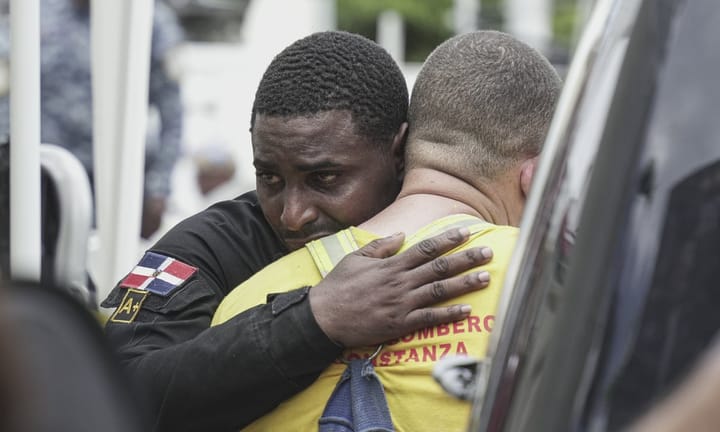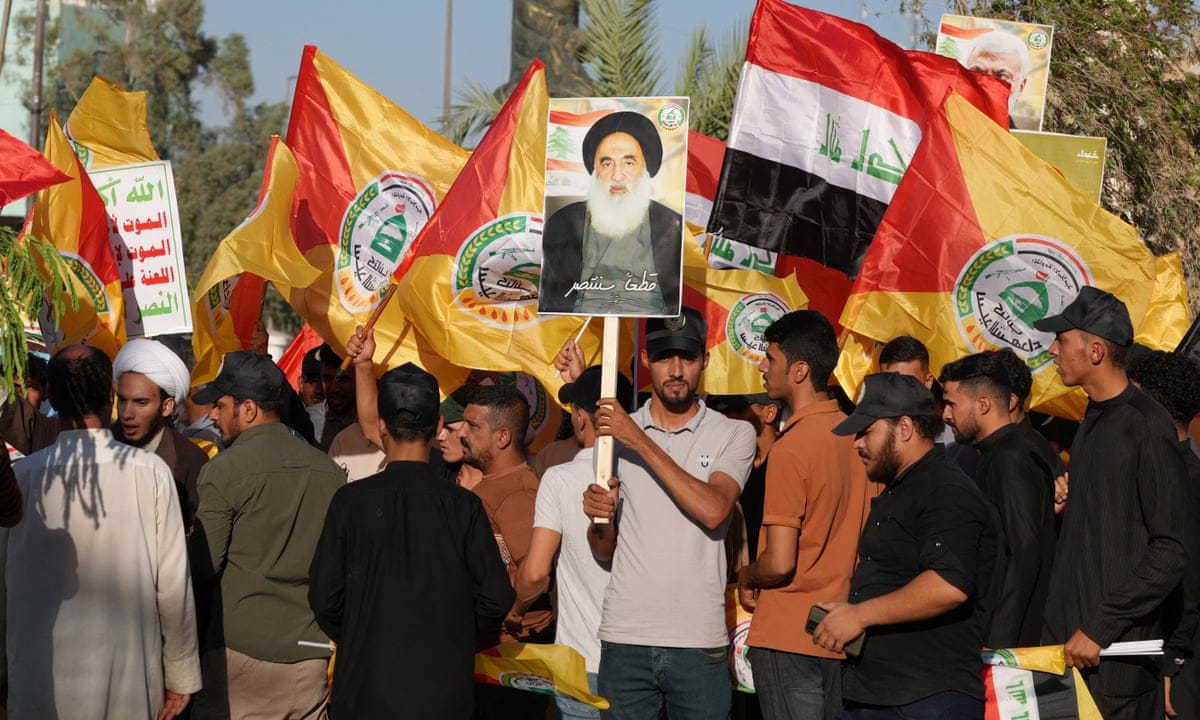Iran-affiliated militias operating out of Iraq have initiated approximately 40 assaults involving missiles, drones, or rockets targeting Israel in the past two and a half months, marking an intensification in what is essentially a covert proxy conflict unfolding across numerous regions within the Middle East.
These incursions began during October of last year's Gaza hostilities; however, analysis by Washington Institute—an American policy research organization —points to their frequency and intensity escalating significantly following an Israeli air strike that neutralized Hassan Nasrallah on September 27th.
Hezbollah originated with Iranian backing in Lebanon over forty years ago as a central element of the broader, loose coalition network established by Tehran throughout recent decades. As Hamas has seen its influence wane after extensive warfare in Gaza and Hezbollah grapples under sustained Israeli aerial assaults plus ground operations within Lebanon, Iran is turning to lesser-known affiliates of this militant network based across Syria, Iraq, and Yemen.
The influx from these locations towards Israel underscores Tehran's strategy: leveraging its "axis resistance" factions in support against Israeli forces whilst simultaneously fostering interfaction competition within the coalition itself. Michael Knights of Washington Institute highlighted that despite their limited capability compared to Hezbollah and Houthis, these Iraqi militias fear being overshadowed by more dominant groups like Houthi Militia or Hamas.
Insight from analysts suggest Iran's allied factions in Syria, Iraq, and Yemen—including those firing missiles at Israel while also targeting sea traffic along the Red Sea—are potential targets for Israeli reprisal amidst contemplations by strategists back home about how best to retaliate against an October 1 launch of around 180 ballistic projectiles aimed squarely at their nation.
In recent times, Israel has executed numerous airstrikes and even large-scale ground assaults using commandos in Syria throughout the past year alone—a testament to its aggressive approach towards militant groups that receive backing from Iran within these nations while also safeguarding crucial supply routes which permit Tehran's resource transfer into Hezbollah ranks back home.
When countless pagers supplied by members of Hezbollah exploded recently, the resulting chaos was attributed to an intervention involving Israeli intelligence—an occurrence that has since drawn renewed attention from international observers and policy architects alike: "Every significant armed struggle does have its overlooked aspects," notes Knights.
The Iraqi resistance network responsible for these offenses against Israel is not merely a regional issue but one with implications far beyond their immediate geography, drawing the eye of world powers like Iran—which seeks to exploit dissent within this loose alliance and maintain leverage in its fight back at Israeli forces.
Israel has yet launched attacks directly from Iraq itself; however there are indications it's tracking threats emanating outwardly by targeting enemies based largely outside Syrian territories, including the Islamic Resistance of Iraq (IRI), which emerged shortly after conflict began in Gaza last October.
The IRI and Houthis have reported increasing cooperation—potentially expanding Iran's influence within this militant network beyond its borders into businesses based right here at home, further complicating matters for Israel as it strategically responds to these multi-fac0rnered threats looming from multiple directions.
Israel has taken a more direct approach against Yemen: two strikes which resulted in destruction of infrastructure—oil storage and power facilities specifically; the latest raid causing tragic civilian casualties according to monitoring institutions such as The Data Project for Human Rights, shedding light on another facet where these proxies collide with Israeli interests.
The conflict brewing within Syria & Iraq often slips under public radar—a reminder that major wars invariably possess areas of neglect and obscurity even in our information-driven era; this underscores the significance not only for global powers but also local entities to remain vigilant as these proxy war zones continue their volatile dance with destabilizing consequences.
Read next

Dominican Republic halts rescue efforts following devastating ceiling failure at nightclub incident
Rescue teams in the Dominican Republic on Wednesday concluded their search for survivors following a catastrophic nightclub roof collapse—this marks one of its most tragic disasters over recent years, with confirmed death toll rising beyond 180 individuals within this Caribbean nation.
Authorities announced an additional count of 60 fatalities

Angelica Huston Discloses Past Cancer Diagnosis; Now Fully Recuperated and Clear of Disease
Anjelica Huston disclosed her cancer diagnosis six years ago after the release of her 2019 film John Wick: Chapter 3 – Parabellum. The actress prefers not to divulge specific details about the type of cancer she faced but expressed pride in overcoming this serious health challenge, which required significant changes to

Royal Visit: King Charles and Queen Camilla Surprise Papal Counterpart at Recovery
The British monarch Charles and his consort Camilla paid an unexpected visit to Pope Francis during their four-day official trip across Italy.
They met with the pontiff at his residence within Casa Santa Marta inside Vatican City where he recovers from a severe lung infection caused by pneumonia, which had

